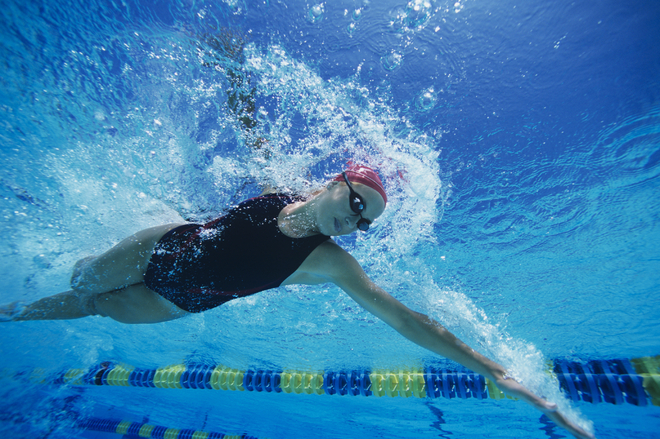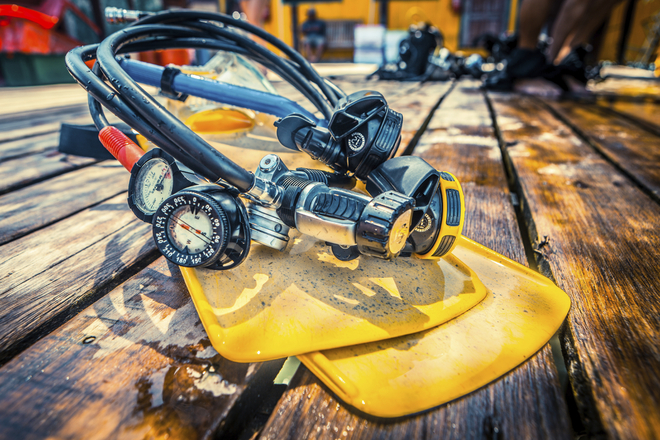There are many myths surrounding scuba diving, ranging from how expensive it is to how dangerous. With no further ado, allow us to debunk the top 10 diving myths below.
Myth #1: Diving is too dangerous
Reality: There are rules and guidelines that surround diving and when you operate within them, your chances of coming to harm are very slim. Scuba diving has an excellent safety record and the guidelines are very easy to follow. Statistically, it’s as safe as bowling. As long as you follow the guidelines, your drive to the dive spot will be the most dangerous part of your dive trip.
Myth #2: Dive theory is too confusing
Reality: It’s really not. If you take more technical diving classes it could get a little more confusing but those classes are elective and only for people interested in pushing the boundaries of diving. The dive theory associated with Open Water certifications, your first certification, isn’t complicated at all and will make complete sense once your instructor explains it.
Myth #3: Diving is far too expensive
Reality: Dive gear can be pricy outright, but it lasts a very long time. The first piece of dive gear you get may hurt your wallet but you can rest assured that you won’t need to buy that again for a few years, even with regular use. When you make that assessment and compare the price over the lifetime of the gear, you’ll see that it’s actually not that expensive at all.
 Myth #4: It takes forever to learn
Myth #4: It takes forever to learn
Reality: Since the book work part of the class can be done online now, it’s done at your own pace. That could be as quickly as a single day, or take as long as a week if you have very limited time to work on it. The diving part takes 3-4 days. That’s it. You could be diving on your own in as little as a week’s time.
Myth #5: Animals in the ocean are too dangerous
Reality: On the whole, divers travel great distances looking for sharks and other marine life that non-divers feel are dangerous. Most divers are very excited to see sharks, in no small part because it’s not everyday that they see them. All animals need to be treated with respect and as a diver you need to understand that you’re intruding in their world and make adjustments in your behavior accordingly. More often than not, a marine life injury is due to the animal defending itself. And even then, serious injuries are not that common. So, don’t poke the barracuda and he won’t bite you.
Myth #6: There’s too much gear to buy 
Reality: The gear can be daunting, no doubt, since diving is a gear intensive sport. But here’s what you need for your open water certification: mask, fins, and snorkel. That’s it. Everything else can be rented for your class and for your entire life as a diver, if you so choose. So while there is a lot of gear that you can buy, you don’t have to.
Myth #7: You have to be young and in great shape to dive
Reality: I sure hope not, because I’m neither. Yes, any sport is a little easier if you’re physically fit, but as long as you don’t have any diving related medical restrictions you should be good to go and there’s no need for you to be a triathlete. If you can climb a few stairs without keeling over and go for a walk without getting winded, you’ll be fine scuba diving.
Myth #8: You have to be an expert swimmer
 Reality: Bullpucky. Basic swimming skills are necessary, such as being able to swim 200 yards and tread water or float for 10 minutes. If you can do that, you can scuba dive. After all, how often do you see videos of scuba divers doing underwater crawl strokes or swimming aggressively? We don’t, because the goal is to expend as little energy as possible while still accomplishing our goals of the dive.
Reality: Bullpucky. Basic swimming skills are necessary, such as being able to swim 200 yards and tread water or float for 10 minutes. If you can do that, you can scuba dive. After all, how often do you see videos of scuba divers doing underwater crawl strokes or swimming aggressively? We don’t, because the goal is to expend as little energy as possible while still accomplishing our goals of the dive.
Myth #9: You’ll feel claustrophobic
 Reality: It’s understandable that someone who hasn’t experienced diving would assume they might feel claustrophobic. But if you can work with your instructor and get yourself past those initial pre-conceived notions, you’ll find – like all divers do – that swimming underwater with supplied air is actually a very freeing experience. You can do things underwater that you could never dream of doing on land. It’s the complete opposite of being confined.
Reality: It’s understandable that someone who hasn’t experienced diving would assume they might feel claustrophobic. But if you can work with your instructor and get yourself past those initial pre-conceived notions, you’ll find – like all divers do – that swimming underwater with supplied air is actually a very freeing experience. You can do things underwater that you could never dream of doing on land. It’s the complete opposite of being confined.
Myth #10: You have to live near tropical waters
Reality: Diving isn’t only done in tropical waters. We live on a planet that is 75% water. Lakes, rivers, and springs are all diveable. Quarries and mines are scattered around the world available for diving too. Each of these offer their own unique diving experiences. Some of the best dive spots on the world are not in tropical waters at all, especially since most of the oceans are not tropical.


 Myth #4: It takes forever to learn
Myth #4: It takes forever to learn